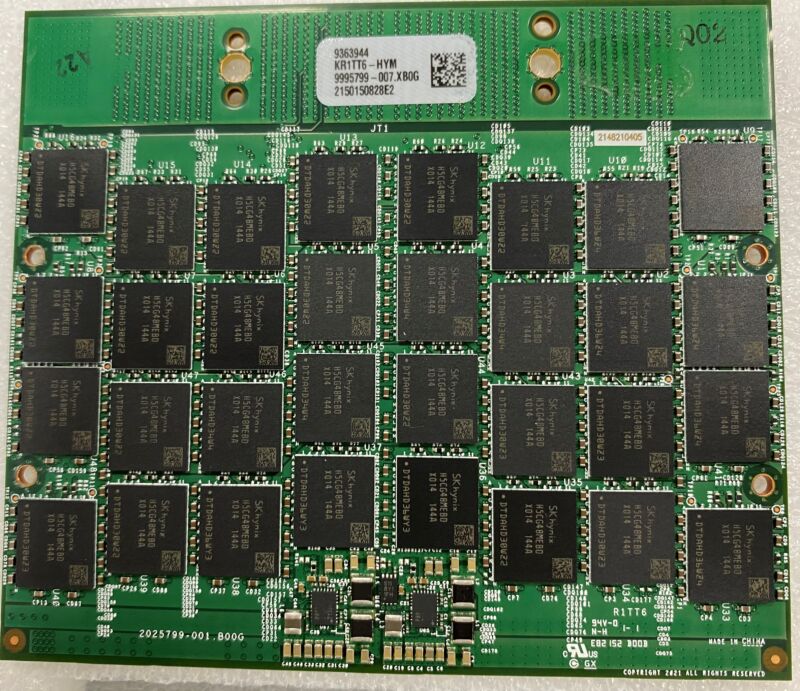Source: Hack a Day

Engineered stone, also known as artificial stone or composite stone, has become a popular material in the construction and design industries due to its aesthetic appeal and durability. It’s become the go-to solution for benchtops in particular, with modern kitchens and bathrooms heavily featuring engineered stone in this way.
However, this seemingly innocuous material harbors a dark side, posing significant health risks to workers involved in its manufacturing and installation. The hazards associated with engineered stone have gone unnoticed for some time, but the toll is adding up, and calls for action grow louder. Let’s examine why engineered stone is so harmful, and explore the measures being taken across the world to curtail or even ban its use.
Hidden Dangers

Engineered stone for benchtops is primarily made from quartz, one of the hardest minerals on Earth. The manufacturing process involves grinding quartz into dust and then combining it with resins and pigments. This creates a product that replicates the beauty of natural stone. Finding natural stone in large, uniform, aesthetically-perfect pieces suitable for benchtops is difficult. Thus, if you want a big natural stone benchtop, it comes at a very high price. Engineered stone benchtops can be had far more cheaply, as the material can be fabricated to any size or shape desired. It can also offer enhanced durability and stain resistance thanks to being non-porous, making it an ideal choice for countertops. Many engineered stone countertop products include a very high amount of silica, often up to 95%. It was first developed in the 1960s, and began to gain in popularity in following decades. It’s now highly popular for use in kitchens and bathrooms.
The material doesn’t pose a risk once installed and used as a benchtop. The danger of engineered stone lies in the dust generated during the cutting, grinding, and polishing processes, which are typically undertaken during manufacturing or installation. By virtue of being made from quartz, dust from engineered stone contains high levels of crystalline silica.
When inhaled, silica dust can penetrate deep into the lungs. The most severe health consequence is silicosis, a debilitating and often fatal lung disease. The dust particles itself in the aveolar sacs in the lungs causing irreversible damage. Over time, the dust particles are ingested by macrophages—immune system cells charged with destroying pathogens. They in turn stimulate the production of collagen around the tiny particles, which in time creates fibrotic nodules in the lungs that coalesce together in patients with higher exposure levels, which inhibits lung function. Those with the disease suffer most particularly from shortness of breath, rapid breathing, persistent coughs, and fatigue. Chest pain, weight loss, and loss of appetite are also common. Patients with silicosis are also much more susceptible to tuberculosis infection, lung cancer, and chronic obstructive pulmonary disease (COPD).
The rise in the use of engineered stone has been mirrored by an alarming increase in cases of silicosis. This has been particularly evident among young workers in the stonecutting industry, many of whom have developed the advanced stages of the disease after only a few years of exposure. The aggressive form of silicosis seen in these workers is often referred to as “accelerated silicosis,” which can develop much more rapidly than traditional forms of the disease. Due to the similar causative factor of inhaling dust and the symptoms of lung disease, engineered stone has at times been colloquially referred to as “the new asbestos.”
In Australia, a case of silicosis linked to engineered stone was first identified in 2015, in a worker from the engineered stone industry. 570 cases have since been identified. The matter was quite unlike some traditional industrial hazards, which can take decades to reveal their harms. In many cases, silicosis from engineered stone was striking down workers in their prime, with many under 35 years of age.
Australia's young tradies who've been given a death sentence.
Sunday on #60Mins, a renovation catastrophe that's led to a global epidemic. pic.twitter.com/CMGLS66YcT
— 60 Minutes Australia (@60Mins) February 15, 2023
The rapid count of cases, especially among young workers, quickly prompted a nationwide outcry for action. In October this year, the Construction, Forestry, Mining, and Energy Union (CFMEU) voted in favor of a ban on the material. The broader union movement in Australia voted to support the ban, meaning no union workers would allow the importation, manufacturing, or use of the material in the country from the middle of 2024. In turn, major hardware retailers agreed to drop the material by the end of the year, and furniture giant Ikea similarly agreed to phase out the material from its kitchen range.
Australian authorities acted in turn, announcing a world-first prohibition on engineered stone to commence on July 1, 2024. The measures include a customs prohibition on the importation of the material. The ban also prohibits the manufacturing, supply, processing, or installation of engineered stone. Reports from government authorities noted that there was ” no scientific evidence for a safe threshold of crystalline silica content in engineered stone, or that lower silica content engineered stone is safer to work with.” Personal protective equipment has also proven to be inadequate to reduce the risk of harm.
In the interim period before the ban takes place, Australian authorities have mandated safer working procedures to limit the possible harm from the material. Water suppression “wet cutting” systems are required, or alternatively, the use of dust extraction and/or ventilation systems. Workers are also required to use appropriate respiratory protective equipment.
These regulations include mandatory health monitoring for workers, improved ventilation and dust extraction systems, and the requirement for wet cutting methods to reduce dust generation. Additionally, there has been an increase in awareness campaigns aimed at educating workers and employers about the risks of silica dust and the importance of protective measures.

The actions taken by Australia serve as a model for other countries grappling with similar issues. The ban on engineered stone, while a bold move, underscores the seriousness of the health risks associated with silica dust exposure. It also highlights the need for a global reevaluation of the use of materials that pose significant health risks to workers. The material has already made headlines in California, where even workers in their 20s as are struggling with silicosis from cutting engineered stone benchtops. Australia’s ban has proven of great interest to those fighting for emergency rules to be placed on the use of the material.
Of course, a ban in one nation is no guarantee that workers elsewhere will be protected. Indeed, asbestos once again proves a useful example. Countries like Norway, Kuwait, and Australia banned the material for its deleterious health effects. The EU followed, as did most nations of the OECD. And yet, the United States continues to allow its use, as do countries like India, Russia, China. The latter two still mine it, as do Kazahkstan and Brazil. All forms of asbestos are carcinogenic to humans, and yet the mining and production goes on. International industry groups still exist to lobby for the use of the material because where there’s potential to make money, someone will have a go.
While engineered stone offers many desirable qualities, the health risks it poses to workers cannot be ignored. The steps taken by Australia to combat the dangers of silica dust exposure set an important precedent, emphasizing the need for vigilant regulation and a commitment to worker safety in industries worldwide. As we move forward, it is crucial to continue prioritizing the health and well-being of those who labor to bring these products to market.
Featured photo: “Kitchen interior with light furniture” by Max Rahubovskiy






